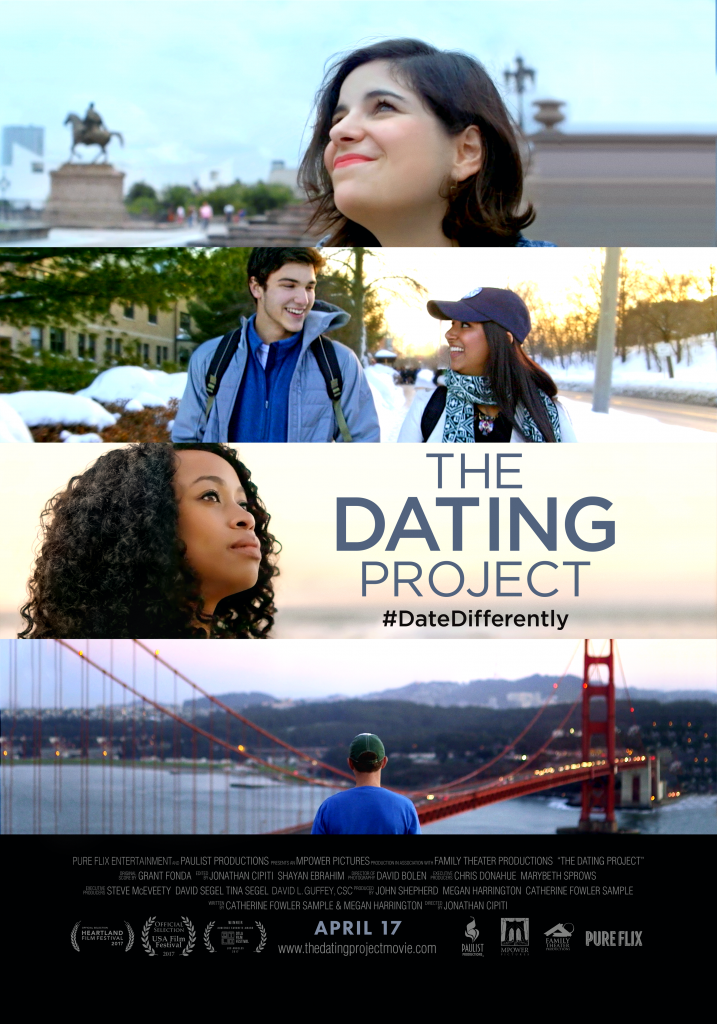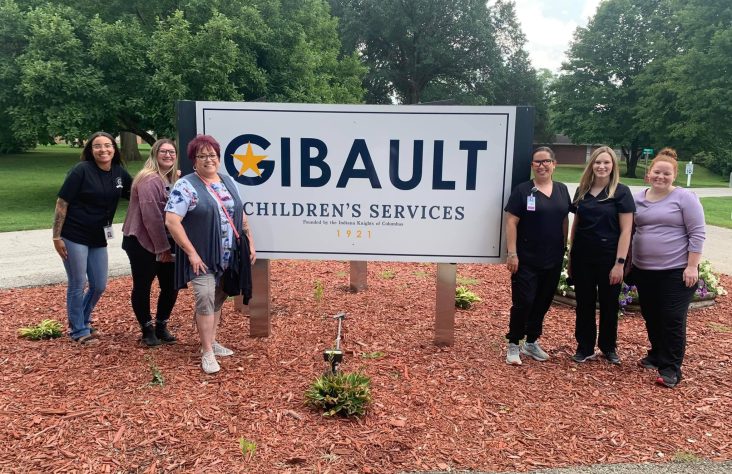April 25, 2018 // National
Film aims to help young singles reclaim ‘social script’ for how to date
By Catholic News Service
BOSTON (CNS) — Going out on dates to get extra credit might sound like an easy way to boost your grade in professor Kerry Cronin’s class at Jesuit-run Boston College.
But the extra-credit assignment is a serious attempt to help college students understand what dating really is and the need to develop meaningful relationships in a day and age when the “hookup culture,” slang for brief sexual encounters, has become prominent on college campuses and in society at large.
A few years ago, the popular professor of philosophy at Boston College noticed the decreased dating trend among her undergraduate students.
“And I thought, ‘Well, this is crazy,’” she said. “So, I started asking students to go on what I refer to as ‘traditional dates’ as part of an extra-credit assignment.”
The Dating Project was born and now it is the subject and title of a new documentary that had a one-night-only national showing in 600 cinemas on April 17. “The Dating Project” website, www.thedatingprojectmovie.com, has information about theaters, tickets and a trailer of the film.
 The film follows Cronin and five single people, ages 20 to 40, in their own quest to find authentic love and meaningful relationships. Cronin’s dating philosophy helps them find more fulfilling and lasting relationships.
The film follows Cronin and five single people, ages 20 to 40, in their own quest to find authentic love and meaningful relationships. Cronin’s dating philosophy helps them find more fulfilling and lasting relationships.
As a news release about the film notes, “There is no script. There are no actors. These are real people trying to find love and happiness in an age of swiping left or right.”
When she established the “dating for extra-credit” assignment idea, Cronin said, she found that for her students, the act of going on a date was complicated, even more than she thought it would be. The problem? With the popularity of hookups, the culture pushes people to have sexual intimacy very early in a relationship, according to Cronin. Many young people are not looking for that but do not understand dating.
Add to that the major role that social media, primarily texting, plays in communicating with one another, leaving many young people with almost no basic skills for social interaction, she said in an interview with Catholic News Service and other media outlets.
In other words, it’s not that young people don’t want to date, they don’t know how, so in 2004 she set out to make a difference with her extra-credit assignment.
She has been giving talks on dating and giving out dating assignments to students since then, and hundreds of students have gone on dates and written up reflections on those dates. She also has spoken about this topic at more than 60 universities around the U.S. and she hears the same themes from students at those talks that she reads in her students’ reflections.
After the assignment, Cronin’s students have to write about how asking for the date was, the date itself and, finally, how they felt about asking and going on a “traditional” date.
Cronin thinks the “social script” for dating has been lost, having “fallen off the radar” since the late 1980s and early 1990s, “when the hookup culture took hold,” she said. Other factors that have changed the dating game include a growing party scene, young people looking to do things in groups more than just as couples and an arrested adolescence keeping people from making a commitment.
“The culture stepped further along into that, and for a while, dating was running parallel with the culture, and then dating sort of dissolved,” she told the National Catholic Register. “The hypersexualization of culture also moved sexual intimacy to the forefront and moved courtship to the background.”
Some basic rules Cronin gives to students before they go on a date are these: The date has to be 45 to 90 minutes long with a person of legitimate romantic interest, in other words not just a friend; the student has to pay and has to make the invitation in person, not via email, Facebook or text message; the date cannot involve alcohol, kissing or sex; the date must be arranged within three days of asking a person out; and the student must have “a definite and simple plan for the date” and not have the other person decide what the date activity will be.
“The Dating Project” was created in partnership with Paulist Productions, Mpower Pictures and Family Theater Productions, and is distributed by Pure Flix and Fathom Events. Megan Harrington, who is Catholic and single, is writer and producer.
“’The Dating Project’ is a funny, insightful, and ‘must-see’ film for any person trying to navigate the single life in today’s culture,” Jackie and Bobby Angel, authors of “Forever: A Catholic Devotional for Your Marriage,” said in a testimonial about the film.
They added: “We wish we could share this documentary with every young person we know, so they can have the knowledge and confidence to reclaim what dating is all about!”
Interview with the producer —
The ancient art of relationships: ‘The Dating Project’
By Claire Kenney
On April 17, select theaters in the Diocese of Fort Wayne-South Bend featured the documentary film “The Dating Project.” Produced by Megan Harrington and Catherine Fowler Sample, the film follows five single young adults and how they navigate dating amidst a culture that defines it as “hooking up” instead of “asking out.”
As detailed in the film, the nature of the hookup culture facilitates a disposable mindset, where commitment is minimal and a genuine human relationship nonexistent.
“Those highlighted in the film are from all different walks of life, but some of their struggles are the same because we all live in the same culture,” Harrington explained. “This culture brings about very particular challenges when navigating the contemporary dating landscape.”
It’s a challenge, she said, that has a domino effect.
“I really believe it’s the most important social justice issue of our time — the area of relationships,” Harrington said. “There is such a disconnect … If we don’t get dating right, it impacts marriage and family. The discussion needs to start at home. The fundamental foundation is family.”
When creating the film with Mpower Pictures, Harrington and Sample’s goal was to “reach people where they are,” as Harrington described it.
“When they watch this film, we wanted them to be able to relate — whether they were religious or not — because we are all human beings with feelings and emotions,” Harrington said.
This film serves as an avenue for addressing the topic of how to date. Furthermore, the Church has a role in facilitating corresponding messaging.
“There is an incredible opportunity to create a movement in the Church whereby young adults are provided with spiritual and practical tools to navigate the dating and relationship landscape,” Harrington said. “Unfortunately, the culture is speaking loudest in this area (of relationships) and it’s time to take back the date. The stage has been set for the Church, with the beauty of its teaching, to tackle this topic in a real and authentic way.”
Father David Guffey, CSC, national director of Family Theater Productions, also served on the production team of “The Dating Project.” As a Holy Cross priest who earned his bachelor’s and master’s degrees from the University of Notre Dame, he spent some time in the South Bend area and now resides in Los Angeles.
When asked what he hopes members of the Diocese of Fort Wayne-South Bend glean from the film, Father Guffey said: “While the film will appeal to everyone, it invites people to consider the value of dating practices that align with the Church’s teachings.”
“It challenges single people called to marriage to ask someone to go on the kind of date that they can feel good about afterwards,” he went on to say.
“The Dating Project” will be made available for purchase and possibly shown in additional theaters in the future. To schedule a screening of “The Dating Project” in your area of the diocese, visit www.thedatingprojectmovie.com.
The best news. Delivered to your inbox.
Subscribe to our mailing list today.






